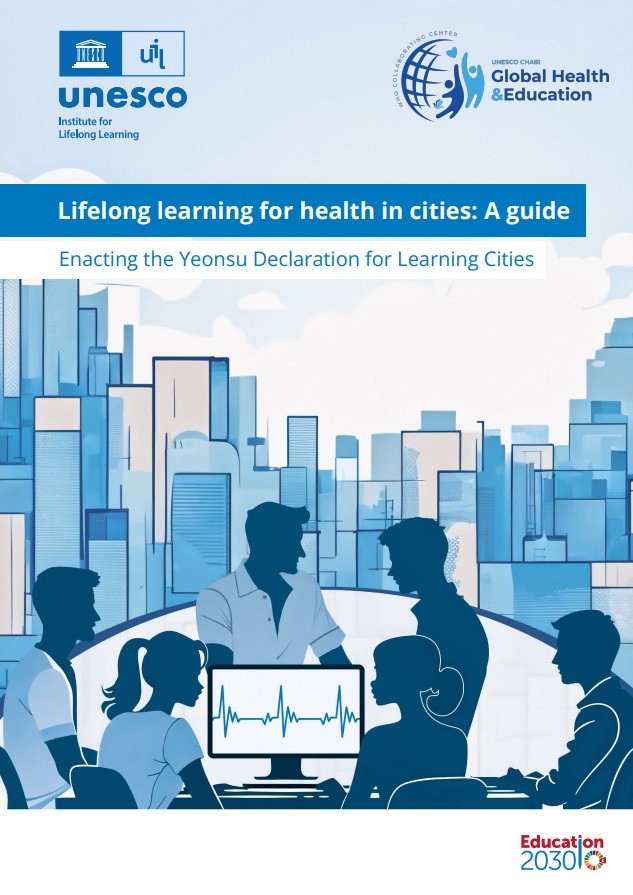
GCED Basic Search Form
Quick Search
当前位置
相关资源

<Executive summary>
The COVID-19 health crisis has led all cities in the world to put public health issues at the top of their agendas. The pandemic has highlighted that one cannot implement public health measures without, or indeed against, the goodwill of the population. The population is not the ‘problem’. Rather, it is part of the solution to the health crisis. Cities play a major role in developing the population’s capacity to promote individual and collective health.
Education and learning are at the very core of what makes ‘health for all’ possible. The crisis, therefore, has been an eye-opener regarding the importance and need for lifelong health education. Instituting such a place-based lifelong learning culture could play a key role in building resilience for individuals, communities and cities.
In Yeonsu, Republic of Korea, the fifth International Conference on Learning Cities was convened from 27 to 30 October 2021. Attending in person or online were: mayors, deputy mayors, officials, representatives from 229 learning cities in 64 countries worldwide, education executives, education experts, representatives of United Nations agencies, the private sector, and regional, international and civil society organizations. At the end of the conference, a declaration was issued. It includes a set of commitments to build healthy and resilient cities.
This guide aims to assist municipal teams in the concrete development of a policy that promotes lifelong learning for health within the framework of the Yeonsu Declaration. It is intended not only for cities already identified as learning cities or healthy cities – which may use the guide to integrate a lifelong learning for health dimension into existing city policies and projects – but also for all cities that wish to implement a policy promoting lifelong learning for health
This guide proposes a three-step process for enacting such a policy: 1. raising awareness of the role of cities in lifelong learning for health; 2. developing a policy that promotes a healthy and resilient city; and 3. implementing the policy.
The lifelong learning for health policy can be formalized through the creation of a learning for health pathway. The pathway makes explicit – and simultaneously formalizes – the content, the learning approaches and learning outcomes of the learning opportunities offered throughout people’s lives. It focuses on building individual capacities for awareness and understanding of complex health issues, critical judgment and action. The pathway also has a communication purpose by making what is being done to promote health in the city explicit to citizens, partners and professionals. It is based on four key action principles: ‘valuing, sharing, aligning and improving’. This approach seeks, first, to demonstrate the value of the educational work carried out in formal, non-formal and informal settings of the urban environment; then to make this known among stakeholders and to make the pathway coherent; and, finally, to identify the gaps and take the necessary initiatives to fill them.
The guide can be used in different ways depending on the context, means and objectives of the individual cities. It is not always necessary to read the whole guide. And we expect that a large proportion of readers and users will simply pick and choose from the various sections of the guide elements that are of particular interest to them. Nonetheless, we hope that everyone will find something to contribute to their city’s efforts and actions for implementing an inclusive policy for promoting lifelong learning for health.
